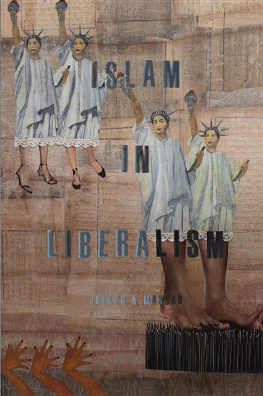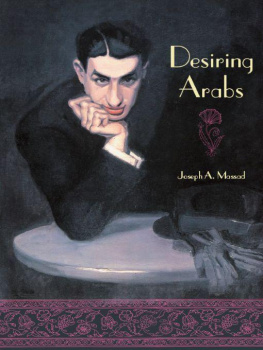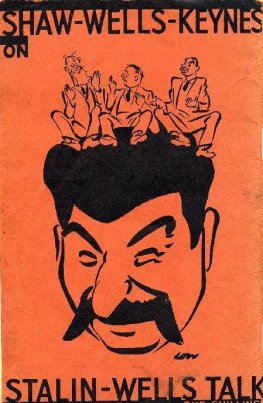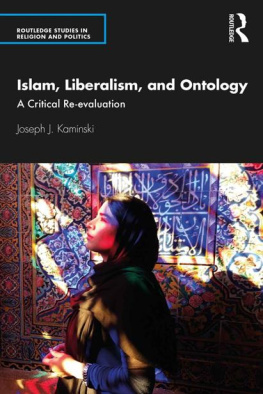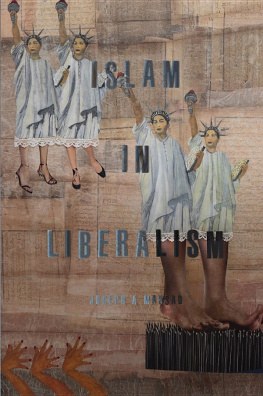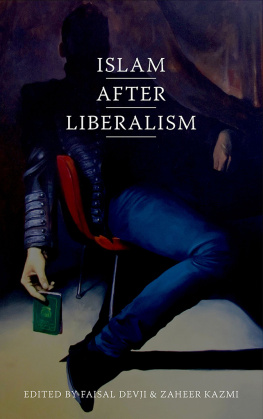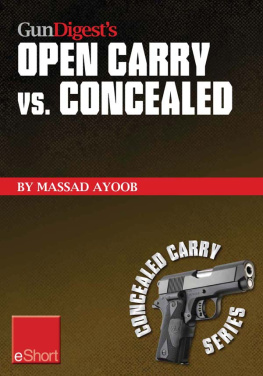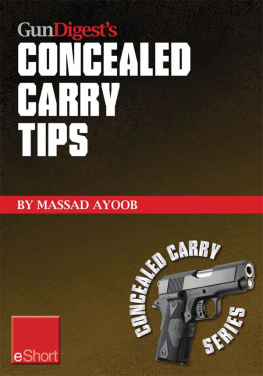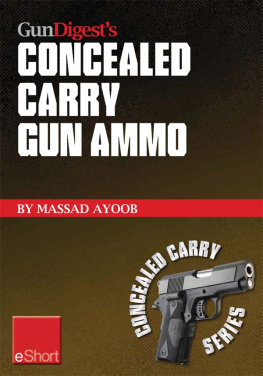Joseph A. Massad - Islam in Liberalism
Here you can read online Joseph A. Massad - Islam in Liberalism full text of the book (entire story) in english for free. Download pdf and epub, get meaning, cover and reviews about this ebook. year: 2014, publisher: The University of Chicago Press, genre: Politics. Description of the work, (preface) as well as reviews are available. Best literature library LitArk.com created for fans of good reading and offers a wide selection of genres:
Romance novel
Science fiction
Adventure
Detective
Science
History
Home and family
Prose
Art
Politics
Computer
Non-fiction
Religion
Business
Children
Humor
Choose a favorite category and find really read worthwhile books. Enjoy immersion in the world of imagination, feel the emotions of the characters or learn something new for yourself, make an fascinating discovery.
- Book:Islam in Liberalism
- Author:
- Publisher:The University of Chicago Press
- Genre:
- Year:2014
- Rating:5 / 5
- Favourites:Add to favourites
- Your mark:
- 100
- 1
- 2
- 3
- 4
- 5
Islam in Liberalism: summary, description and annotation
We offer to read an annotation, description, summary or preface (depends on what the author of the book "Islam in Liberalism" wrote himself). If you haven't found the necessary information about the book — write in the comments, we will try to find it.
Islam in Liberalism — read online for free the complete book (whole text) full work
Below is the text of the book, divided by pages. System saving the place of the last page read, allows you to conveniently read the book "Islam in Liberalism" online for free, without having to search again every time where you left off. Put a bookmark, and you can go to the page where you finished reading at any time.
Font size:
Interval:
Bookmark:
Islam in Liberalism
Islam in Liberalism
J OSEPH A . M ASSAD
The University of Chicago Press
Chicago and London
JOSEPH A. MASSAD is professor of modern Arab politics and intellectual history in the Department of Middle Eastern, South Asian, and African Studies at Columbia University. He is the author of Desiring Arabs (2007), The Persistence of the Palestinian Question: Essays on Zionism and the Palestinian Question (2006), and Colonial Effects: The Making of National Identity in Jordan (2001).
The University of Chicago Press, Chicago 60637
The University of Chicago Press, Ltd., London
2015 by The University of Chicago
All rights reserved. Published 2015.
Printed in the United States of America
24 23 22 21 20 19 18 17 16 15 1 2 3 4 5
ISBN-13: 978-0-226-20622-6 (cloth)
ISBN-13: 978-0-226-20636-3 (e-book)
DOI: 10.7208/chicago/9780226206363.001.0001
Library of Congress Cataloging-in-Publication Data
Massad, Joseph Andoni. 1963 author.
Islam in liberalism / Joseph A. Massad.
pages cm
Includes bibliographical references and index.
ISBN 978-0-226-20622-6 (hardcover : alkaline paper) ISBN 978-0-226-20636-3 (e-book) 1. Orientalism. 2. LiberalismMoral and ethical aspects. 3. IslamRelations. 4. Middle EastForeign public opinion, Western. 5. East and West. I. Title.
DS61.85.M37 2015
306.697dc23
2014021594
This paper meets the requirements of ANSI/NISO Z39.48-1992 (Permanence of Paper).
For Neville Hoad
Contents
I have been thinking about the modern intellectual and semantic history of the term Islam for a few years and began my work on the Genealogies of Islam in 2008, soon after my last book, Desiring Arabs , had come out. As soon as I began to research the book, however, I realized that I needed to explain my point of departure for this endeavor, namely the uses to which the term Islam has been put by European and Euro-American liberalism (and increasingly by Arab and Muslim liberals) since the eighteenth century. I initially decided to do so in a long introduction to the project but quickly realized that an introduction would not suffice as the issues multiplied and needed a more extensive scholarly treatment. This is when I decided that I had to write a book on the topic to contextualize my forthcoming project. This is how Islam in Liberalism was born.
The book was written over a protracted period of time. The first drafts of were written mostly in New York between 2011 and 2013, but redrafted in Cairo and Amman in the summers of 2012 and 2013. The introduction was written during the summer of 2013 in Amman when the book was finalized.
I am grateful to a number of friends and colleagues who took the time to read drafts of chapters and provided me with advice and recommendations. Asad Abukhalil, Ahmad Atif Ahmad, Judith Butler, Kaoukab Chebaro, Marwa Elshakry, Ahmed Issawi, Islah Jad, Samia Mehrez, Alan Mikhail, Rosalind Morris, Lecia Rosenthal, Leticia Sabsay, Mayssoun Sukarrieh, and Alexis Wick read earlier drafts of at least one chapter, and in some cases two or three chapters. Their insights were crucial to improving the arguments and the research for these chapters. I also thank Joan Copjek for her comments and suggestions on an earlier version of . Ali Abunimah and Wael Hallaq read most of the manuscript and were generous with their time and comments, providing me with important suggestions, critiques, and recommendations. I am grateful for their efforts and exemplary friendship and collegiality. Talal Asad and Anne Norton provided meticulously detailed critiques, insights, and suggestions that have improved the book immeasurably. I cannot begin to express my appreciation and gratitude for their serious engagement with my work.
At Columbia, my students in my seminars Psychoanalysis, Identity, and Culture and Universalizing Sexuality also provided important suggestions for and provided important suggestions. I am grateful to all of them.
Neville Hoad read the manuscript since its early infancy and in several of its metamorphoses and reread its final form at least twice. I am indebted to him forever! The book, like all my previous books, bears the mark of his numerous suggestions and insights. Neville has been my main intellectual interlocutor since we met in 1991 at a party at the apartment of our common friend Aamir Mufti, a few weeks after we had both started graduate school at Columbia University. Ever since then our intellectual and political concerns have defined our friendship and scholarly and political alliance. His support and love have sustained me ever since. I dedicate this book to him as a token of my friendship and appreciation.
I was invited to give a number of lectures based on the book and/or its constituent chapters at a number of universities. I thank Ussama Makdisi for inviting me to give a lecture at the James A. Baker III Institute for Public Policy at Rice University, Alejandro Paz for inviting me to the University of Toronto, Abdel Razzaq Takriti for inviting me to St Antonys College at Oxford University, Dana Sajdi for inviting me to Boston College, Nimer Sultany for inviting me to Harvard Law School, Sara Roy and Roger Owen for inviting me to the Center for Middle Eastern Studies at Harvard University, Suad Joseph for inviting me to give a lecture at the Rights Talk and Rights Work in the Middle East and South Asia symposium sponsored by The Middle East/South Asia Studies Program at the University of California at Davis, Nahla Abdo for inviting me to deliver the keynote address at the Counterpoints: Edward Saids Legacy conference at the University of Ottawa and the University of Carleton, Gil Anidjar and Stathis Gourgouris for inviting me to deliver the keynote address at the Orientalism from the Standpoint of Its Victims conference at Columbia University, Mohammed Tabishat for inviting me to the Wissenschaftkolleg seminar on Islam, the Quran, and Late Secularism, Caroline Rooney for inviting me to deliver the keynote address at the University of Kents conference Cultural Memory, Julia Borossa for inviting me to deliver the keynote address at the conference Psychoanalysis, Fascism, Fundamentalism at the Freud Museum in London, Samia Mehrez for inviting me to deliver the keynote lecture at the Magda al-Nowaihi Award ceremony and for inviting me to deliver a lecture at the Center for Translation Studies, both at the American University in Cairo, Islah Jad for inviting me to deliver a lecture via video link at Birzeit University, Ramn Gutirrez for inviting me to deliver the keynote address at the Islam and Sexuality conference at the University of Chicago, Lisa Wedeen for inviting me to present at the Comparative Politics Workshop at the Department of Political Science at the University of Chicago, Shaden Tageldin for inviting me to deliver two lectures at the Institute for Global Studies at the University of Minnesota, Ismat Husu for inviting me to deliver a guest lecture at the Institute of Social Service at the University of Amman al-Ahliyyah and the National Jordanian Committee for Womens Affairs, Faris Hilmi for inviting me to lecture at the Department of Psychology at the University of Jordan, Jayesh (Jay) Needham for inviting me to deliver the keynote address at the The Sexualized Other: A Symposium on Asian Sexuality and Gender Identity as well as another separate lecture at Oberlin College, Michael Warner for inviting me to the conference Why Homosexuality: Religion, Globalization, and the Anglican Schism at Yale University, Amy Aisen Elouafi for inviting me to lecture at Syracuse Universitys Departments of History and of Women and Gender Studies, Susan Slymovich for inviting me to lecture at the Center for Near Eastern Studies at the University of California, Los Angeles, Jeffrey Sacks for inviting me to lecture at the University of California Riverside, Katherine Franke for inviting me to give a seminar at the Gender and Sexuality Law Colloquium at the Columbia University Law School, Gabrille Schleijpen and Nat Muller for inviting me to deliver the keynote address at the Becoming Nation conference held at the Gerrit Rietveld Academie, Amsterdam, Edda Manga for inviting me to deliver two lectures at the University of Gothenberg and the Clandestino Institute in Sweden, and Mikela Lundahl for inviting me to deliver a lecture at the Symposium on Disidentification at the University of Gothenberg and to give a lecture at the Department of Gender Studies also at the University of Gothenberg, Alberto Toscano for inviting me to lecture at the University of Londons Goldsmiths College, Mouannes Hojairi for inviting me to lecture at the Department of Africana Studies at Vassar College, Jeff Handmaker for inviting me to lecture at the International Institute of Social Studies at Erasmus University in The Hague, Michael Salvatore for inviting me to deliver a lecture the University of Southern California, Khaled Ziyadah and Sumantra Bose for inviting me to give a lecture at the London School of Economics, Thomas Waugh for inviting me to lecture at Concordia University in Montreal, Ahmad al-Mallah for inviting me to lecture at Middlebury College, Alexis Wick for inviting me to the Department of History and the American Studies Center at the American University of Beirut, Tarik Sabry for inviting me to give the keynote address at the conference Arab Subcultures at the University of Westminsters Communication and Media Research Institute, Sonja Hegasy for inviting me to give a series of lectures at the Zentrum Moderner Orient and Humboldt University in Berlin, Beth Baron for inviting me to give a paper at The Dissections Seminar: New Directions in Research on the Middle East and North Africa, cosponsored by the Middle East and Middle Eastern-American Center and the Center for the Humanities at the City University of New York, Graduate Center, Camila Pastor de Maria y Campos, Gilberto Conde, and Shadi Rohana for inviting me to deliver the keynote address at the Semana rabe conference at the Colegio de Mexico and the Centro de Investigacin y Docencia Econmica in Mexico City, Stella Magliani Belkasem of the March 20 Front for inviting me to give a lecture at Columbia Universitys Reid Hall in Paris, Burcak Keskin-Kozat for inviting me to present a paper at the Winter Workshop of the Sohaib and Sara Abbasi Program in Islamic Studies at Stanford University, Robbert Woltering for inviting me to deliver the keynote address at the opening of the Amsterdam Centre for Middle Eastern Studies (ACMES) at the University of Amsterdam, and Marcela Zedn for inviting me to give a series of lectures at the University of Chiles Center for Arab Studies in Santiago.
Next pageFont size:
Interval:
Bookmark:
Similar books «Islam in Liberalism»
Look at similar books to Islam in Liberalism. We have selected literature similar in name and meaning in the hope of providing readers with more options to find new, interesting, not yet read works.
Discussion, reviews of the book Islam in Liberalism and just readers' own opinions. Leave your comments, write what you think about the work, its meaning or the main characters. Specify what exactly you liked and what you didn't like, and why you think so.

